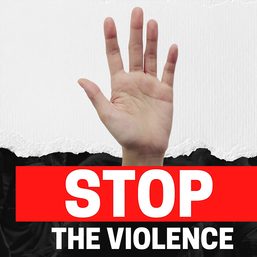SUMMARY
This is AI generated summarization, which may have errors. For context, always refer to the full article.

MANILA, Philippines – Youth groups urged the national government to strengthen the role of the Sanggunian Kabataan (SK or youth councils) and civilians in responding to disasters, such as recent Severe Tropical Storm Paeng (Nalgae)
Kabataan Partylist and Samahan ng Progresibong Kabataan (SPARK) made the call as Paeng affected Filipinos in all major island groups in the country. Kabataan called on the government to develop the capacity of civilian-led efforts such as through the SKs, which work closely with barangays.
“Although accuracy of flood forecasts and timeliness of advisories are important, we believe that local civilian community officials and leaders, especially youth organizations, are supposedly best positioned with their knowledge of the grassroots to mobilize communities to safety, given the proper training, funding and support from the national government,” said Kabataan.
The group, which is represented in Congress, said that while the military is indeed a force multiplier and first responder in national-scale emergencies, government troops would ultimately need advice from locals for the effective execution of disaster response.
“Instead of Malacañang passing blame on the coordination of PAGASA (Philippine Atmospheric, Geophysical and Astronomical Services Administration) and local government units for flood casualties in the aftermath of Typhoon Paeng, it is best that they recognize local bayanihan efforts of citizens despite limited resources and ensure policies to strengthen such capacity,” said Kabataan.
The group also called on the National Youth Commission to release the implementing rules and regulations of the SK compensation and empowerment law, which would provide honoraria to SK officials, trainings, and funding to professionalize youth leaders.
“SK officials inevitably form part of the backbone of any local civilian-led disaster response effort and should be properly trained and compensated according to this law,” said Kabataan.
The SK compensation and empowerment law was passed in May 2022.
SPARK national coordinator John Lazaro agreed with Kabataan’s call in a separate email to Rappler. According to SPARK, grassroots organizations such as SKs are in “the best place” to direct local disaster risk reduction and relief efforts.
However, this does not mean that the national government should rely solely on private citizens to deal with disaster response.
“SPARK stresses that strengthening these organizations is in no way a free pass for the national government to pass the buck of disaster response to private citizens. Throughout the past few years, the Filipino masses have had to rely heavily on the goodwill of fellow citizens to survive natural disasters, with very little national government support,” said Lazaro.
“While stronger grassroots organizations would improve disaster response, so would a vice president that does more than post thoughts and prayers, or a president that barely makes any public appearances when he is most needed,” Lazaro added.
The whereabouts of President Ferdinand Marcos Jr. and Vice President Sara Duterte were subject to public scrutiny during the weekend of the tropical storm, which coincided with the Undas season, when millions of Filipinos were mobile to see deceased loved ones.
SPARK also called on fellow youth organizations to keep pressing the government, financial institutions, and giant corporations that have had a big hand in the climate crisis.
“SPARK reiterates that we must end the cycle of simply preparing for, and recovering from, disaster after disaster. The climate crisis at the root of it all must be addressed, and that begins by holding the elites that proliferate it accountable,” said Lazaro.
Paeng left the Philippines with more than 100 dead, and affected at least 575,728 families across 17 regions. Initial estimates also showed that Paeng wiped out at least P1.3 billion worth of agricultural goods.– Rappler.com
Add a comment
How does this make you feel?










There are no comments yet. Add your comment to start the conversation.